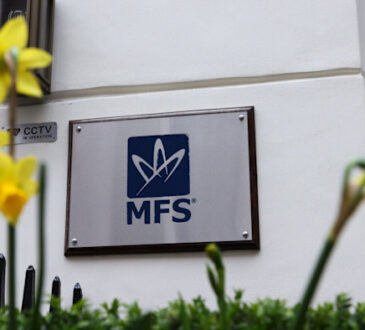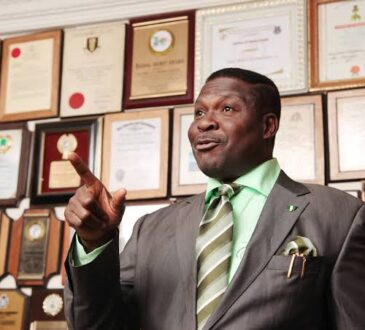It’s all down to SONIA swap rates (very broadly speaking, this is how much banks pay for sterling overnight), which have fallen this morning following Liberation Day in the US.
According to Bloomberg, traders are now pricing in nearly 63 basis points of cuts from the Bank of England with the expectation of three rate cuts this year.
The result? Potentially cheaper mortgages for UK homeowners – albeit with worse rates for savers if rates fall.
🚨 #TrumpTariffs: Economic genius or global disaster? 10% import tax + 34% on China = higher prices for YOU. Markets tank, jobs at risk—yet Trump calls it ‘Liberation.’ Thoughts? @zerohedge @MartiniGuyYT @Reuters @BBCBreaking pic.twitter.com/pPQGUZtWDy
— Daily Viral Clips. (@dailyviralclip) April 3, 2025
Pete Mugleston, Mortgage Advisor & Managing Director at Online Mortgage Advisor, explains: “Falling SONIA swap rates and expectations of multiple Bank of England rate cuts could be great news for the UK property market.
“If Trump’s tariffs slow global growth, prompting rate cuts, it may indirectly help UK buyers by lowering mortgage rates. First-time buyers and homeowners could benefit from improved affordability, potentially sparking a flurry of market activity, especially among those waiting for rates to fall.
“While his intentions may not have been to boost the UK housing market, Trump’s actions could result in a ripple effect that could create opportunities for buyers and encourage lenders to reprice products more competitively in the months ahead.”
Recommended reading:
Riz Malik, Independent Financial Adviser at R3 Wealth agrees: “Trump’s trade rhetoric may have rattled global markets, but it could end up offering a silver lining for UK mortgage holders.
“Falling swap rates suggest lenders may soon reduce fixed-rate mortgage pricing, easing pressure on homeowners already hit by rising household bills and Reeves’ budget.
“While the full economic impact of US tariffs is still unclear, a more competitive mortgage market would be a timely boost for the UK housing sector. President Trump may have earned his state visit after all.”
But, it’s not entirely good news, as Stephen Perkins, Managing Director at Yellow Brick Mortgages explains: “There has been an equilibrium between the desire to help an ailing economy with rate cuts and the need to keep inflation down with rate holds at the Bank of England of late, with predictions of only a couple of reductions in 2025.
The delivery was pure Trump.
Flanked by steelworkers and farmers, he railed against “globalist sellouts” and past administrations.
“This is liberation from bad deals.”
“Biden wouldn’t have the guts.”
He’s promising a manufacturing renaissance. pic.twitter.com/lL09g8vl6H
— Riccardo (@Ric_RTP) April 3, 2025
“President Trump’s tariffs have taken a sledgehammer to the scales of that equilibrium and damaged the world economy, so now there is growing pressure on more rate reductions this year to provide life support to the UK economy to compensate for the impact of the tariffs.”
Jason Hollands, managing director of investment platform Bestinvest by Evelyn Partners, says the Bank of England “faces a dilemma – on the one hand, tariffs are going to lift the prices of some goods and it has a job to keep the lid on inflation so may keep rates higher for longer, but on the other hand it will want to support the economy from sinking into recession.
“My hunch is that they will regard price spikes related to the implementation of tariffs as a one-off shock and focus more on the risk of economic stagnation. We could therefore see interest rates come down more rapidly than expected.
“The hit to the economy from a global trade war could leave (Chancellor) Rachel Reeves’ plans in tatters”.
Mr Hollands suggested one option might be to freeze tax allowances and thresholds beyond 2028, “leading to more and more people slipping deeper into income tax by stealth”.



